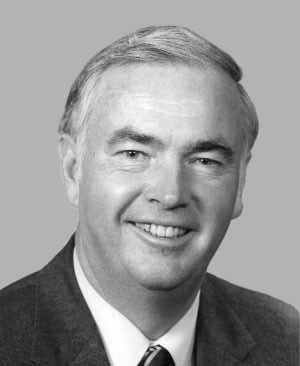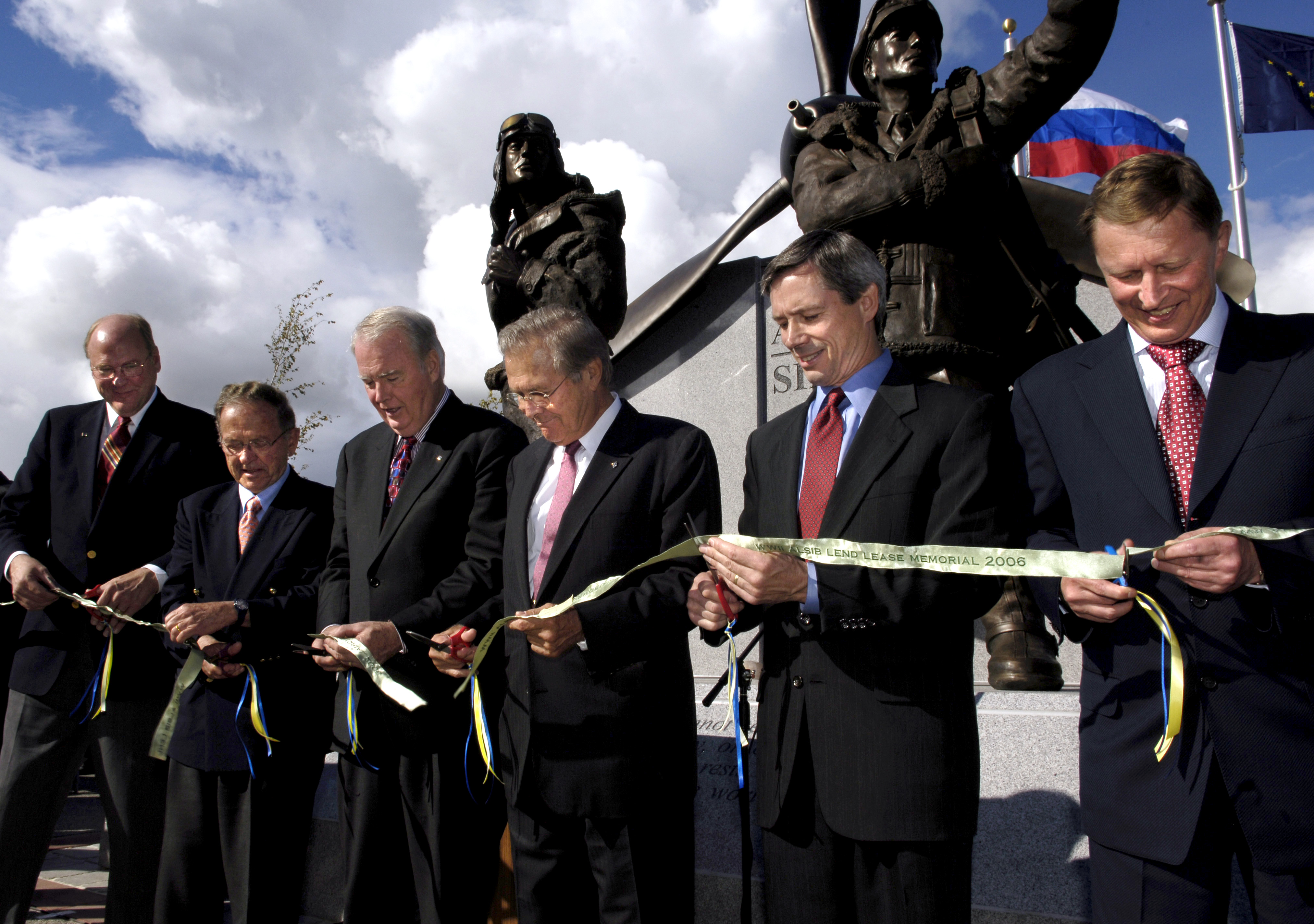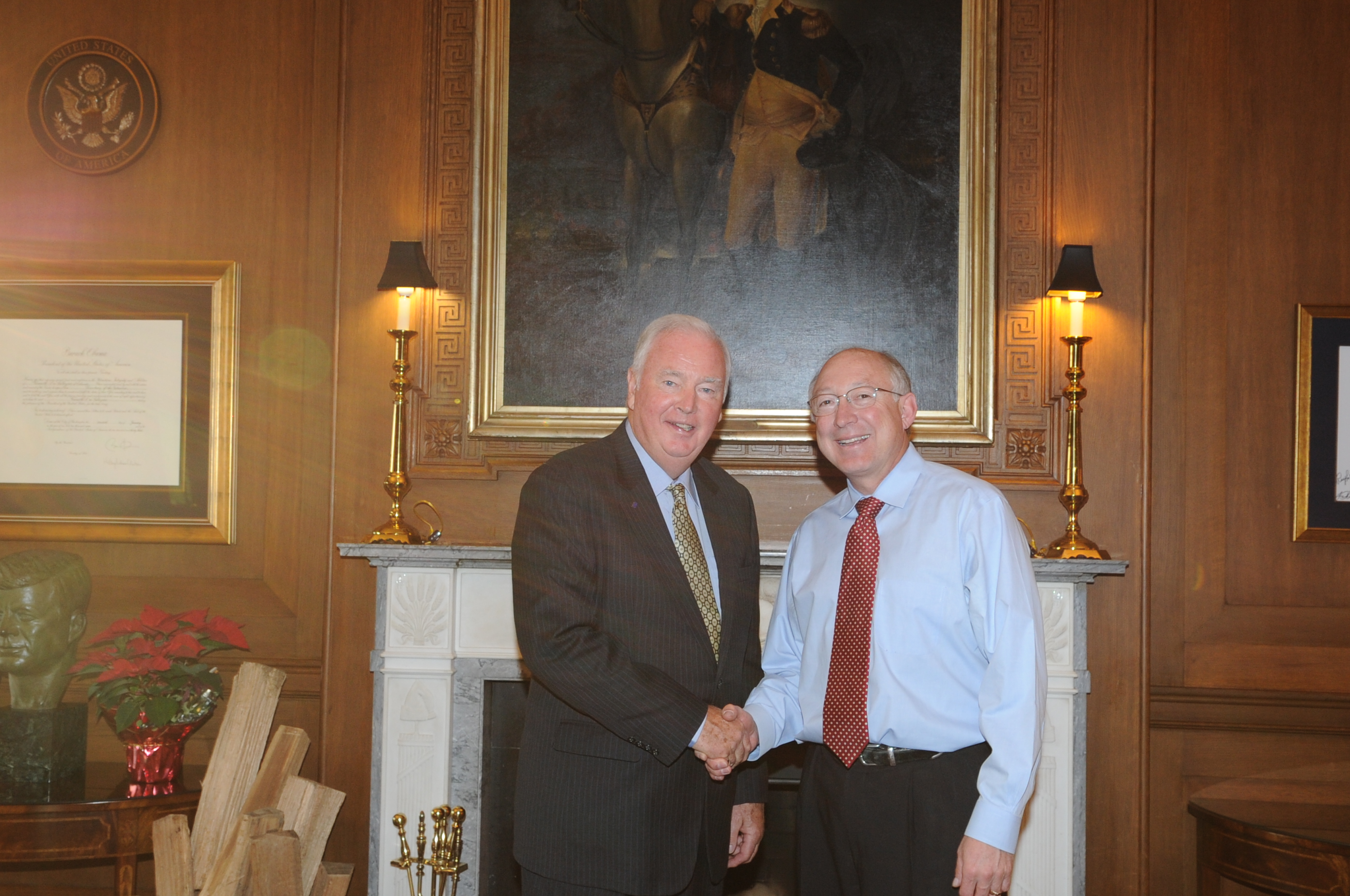1. Overview

Frank Hughes Murkowski (born March 28, 1933) is an American Republican politician who served as a United States Senator for Alaska from 1981 to 2002 and as the eighth governor of Alaska from 2002 to 2006. His political career, spanning over two decades in the Senate and a term as governor, was marked by his advocacy for resource development, conservative policy positions, and notable controversies, including the appointment of his daughter to his Senate seat and a decline in public approval during his governorship.
2. Early Life and Education
Frank Murkowski's early life was rooted in the Pacific Northwest and Alaska, where he developed his foundational experiences before embarking on his career in finance and politics.
2.1. Childhood and Upbringing
Murkowski was born in Seattle, Washington, on March 28, 1933, to Helen (née Hughes) and Frank M. Murkowski. His paternal grandfather was of Polish descent. He spent his formative years growing up in Ketchikan, Alaska, a community he would later serve. He graduated from Ketchikan High School in 1951.
2.2. Education and Military Service
Following high school, Murkowski pursued higher education, attending Santa Clara University from 1951 to 1953. He then transferred to Seattle University, where he earned a BS in economics in 1955. After completing his studies, he joined the United States Coast Guard in the summer of 1955, serving until 1957. During his military service, he was stationed in Sitka and Ketchikan, Alaska, and served aboard the cutters Sorrel and Thistle. His daughter, Lisa Murkowski, was born in 1957, the year he concluded his military service.
3. Early Career
Before his long tenure in elected office, Frank Murkowski established a significant career in the financial sector and held various public service roles within Alaska.
3.1. Banking and Financial Career
After his military service, Murkowski began his career in finance, working at Pacific National Bank. He further honed his expertise through studies at the Pacific Coast Banking School. His banking career culminated in 1971 when he became the president of the Alaska National Bank of the North. He also took on leadership roles within the financial community, heading the Alaska Bankers Association.
3.2. Pre-Senate Public Service
Murkowski transitioned into public service, becoming Alaska's youngest Commissioner of Economic Development at the age of 33. In 1977, he served as the head of the Alaska State Chamber of Commerce, further solidifying his presence in Alaska's economic and public spheres before his entry into national politics.
4. Political Career
Frank Murkowski's political career was extensive, encompassing an initial bid for the U.S. House, a long and influential period in the U.S. Senate, and a term as Governor of Alaska, each marked by significant policy debates and public scrutiny.
4.1. U.S. House of Representatives Election
In 1970, Murkowski made his first attempt at federal office, running as the Republican nominee for Alaska's sole U.S. House seat. However, he was defeated in a significant loss by his Democratic opponent, Nick Begich, who secured 55% of the vote compared to Murkowski's 45%.
4.2. United States Senate
Murkowski's entry into the United States Senate marked a pivotal period in his political life, where he served for over two decades and became a prominent voice on energy and natural resources.
4.2.1. Election and Tenure

Murkowski was first elected to the U.S. Senate in 1980, defeating Democratic candidate Clark Gruening. His victory, achieved with 54% of the vote, was significantly aided by the popularity of Ronald Reagan, who was elected President in the same year. He was subsequently re-elected three times, in 1986, 1992, and 1998, serving a total of 21 years as Alaska's junior senator. In his 1998 re-election, he secured a commanding 75% of the vote.
4.2.2. Committee Leadership and Environmental Policy
During his time in the Senate, Murkowski was most notably the Chairman of the Senate Committee on Energy and Natural Resources from 1995 to 2001. In this influential role, he was a vocal advocate for opening the Arctic National Wildlife Refuge (ANWR) to oil drilling, arguing for its economic benefits and energy independence. However, despite his efforts, his attempts to authorize drilling in ANWR were ultimately unsuccessful during his chairmanship.
4.2.3. Policy Positions and Social Impact
Murkowski held staunchly conservative policy positions throughout his Senate career. He maintained an anti-abortion record and consistently opposed gun control measures and affirmative action policies. His views on social issues extended to the military, where he opposed lifting the ban on homosexuals serving. In a Senate floor statement, he asserted that while homosexuals have a right to choose their lifestyle, there is no inherent right to military service. His opposition to lifting the ban also focused on the potential cost implications for the Veterans Administration in treating service members infected with HIV. This stance contrasted sharply with his daughter, Lisa Murkowski, who, as his successor in the Senate, voted to repeal the ban on homosexuals in the armed services and later became a prominent Republican Senator to endorse the legalization of same-sex marriage while in office.


4.2.4. Appointment of Daughter to Senate Seat
Upon his election as Governor of Alaska in 2002, Murkowski resigned his U.S. Senate seat, which still had two years remaining on its term. He then made the controversial decision to appoint his daughter, Lisa Murkowski, who was at the time the Majority Leader-designate of the Alaska House of Representatives, to fill his vacant Senate seat. This appointment drew widespread criticism and allegations of nepotism, raising concerns about fairness and the democratic process.
4.3. Governorship of Alaska
Murkowski's term as Governor of Alaska was marked by his efforts to secure a major gas pipeline project and significant public controversies that led to a sharp decline in his approval ratings.
4.3.1. Election and Administration
Murkowski was elected Governor of Alaska on November 5, 2002, securing nearly 56% of the vote. This represented the highest percentage for any Republican gubernatorial nominee in Alaska's history up to that point. He succeeded Democratic incumbent Tony Knowles and took office on December 2, 2002. Immediately upon his inauguration, he resigned from his Senate seat, leading to the aforementioned appointment of his daughter, Lisa Murkowski, to fill the vacancy.
4.3.2. Key Policies and Governance Controversies
During his governorship, Murkowski focused on securing a major gas pipeline deal for Alaska. He brokered a significant agreement, but this deal was never formally considered by the state legislature. Murkowski's threat to sign the deal without legislative approval led to a successful lawsuit by the legislature to prevent him from doing so.


His administration faced several public controversies, including the purchase of a state jet, which became a symbol of his declining popularity. By the end of his term, Murkowski's approval ratings plummeted to 19%, among the lowest for any governor in the nation. This unpopularity contributed to his unsuccessful bid for re-election in 2006. In the Republican primary election on August 22, 2006, he finished third with 19% of the vote, behind Sarah Palin (51%) and John Binkley (30%). This margin of defeat was the largest in United States history for an incumbent governor in a Republican primary. In 2008, his former chief-of-staff, Jim Clark, admitted to being aware of a political poll paid for by Veco Corp to gauge Murkowski's popularity. Clark was initially charged with "honest services fraud," but the charges were later voided after the U.S. Supreme Court narrowed the scope of the statute. Murkowski considered another gubernatorial run in the 2018 election but ultimately decided against it.
5. Electoral History
Frank Murkowski's electoral career spanned several decades, including his initial unsuccessful bid for the U.S. House, four successful Senate campaigns, and his single term as Governor.
| Election Name | Office | Term | Party | Vote Percentage | Vote Count | Result | Outcome |
|---|---|---|---|---|---|---|---|
| 1970 Election | U.S. Representative (Alaska At-large) | 92nd | Republican | 44.89% | 35,947 | 2nd | Lost |
| 1980 Election | U.S. Senator (Alaska Class 3) | 97th | Republican | 53.69% | 84,159 | 1st | Won |
| 1986 Election | U.S. Senator (Alaska Class 3) | 100th | Republican | 54.02% | 97,674 | 1st | Won |
| 1992 Election | U.S. Senator (Alaska Class 3) | 103rd | Republican | 53.05% | 127,163 | 1st | Won |
| 1998 Election | U.S. Senator (Alaska Class 3) | 106th | Republican | 74.49% | 165,227 | 1st | Won |
| 2002 Election | Governor of Alaska | 8th | Republican | 55.85% | 129,279 | 1st | Won |
6. Controversies and Criticisms
Frank Murkowski's political career was marked by several significant controversies and criticisms, particularly during his tenure as Governor, which heavily impacted his public image and political standing.
6.1. Nepotism Allegations
One of the most significant criticisms against Murkowski stemmed from his decision to appoint his daughter, Lisa Murkowski, to his vacant U.S. Senate seat in 2002, immediately after he was elected governor. This act was widely condemned as nepotism, raising serious questions about fairness, democratic process, and the integrity of political appointments. Critics argued that the appointment undermined the principles of meritocracy and public accountability, as it bypassed a popular vote for a crucial federal office.
6.2. State Jet Purchase
In 2005, despite strong opposition from the Alaska Legislature, Governor Murkowski authorized the purchase of an IAI Westwind II jet for the state using public funds, at a cost of 2.70 M USD. This acquisition became a potent symbol of his administration's perceived extravagance and detachment from public sentiment. The "jet scandal" fueled widespread public discontent and became a major point of contention, contributing significantly to his declining popularity. His successor, Sarah Palin, famously promised to sell the jet upon taking office, further highlighting the controversy.
6.3. Low Approval Ratings and Primary Defeat
The controversies surrounding Murkowski's governorship, particularly the nepotism allegations and the state jet purchase, severely eroded public trust and led to a dramatic decline in his approval ratings. By the end of his term, his approval rating had plummeted to a mere 19%, making him one of the most unpopular governors in the United States. This widespread dissatisfaction culminated in his unsuccessful bid for re-election in the 2006 Republican primary. He finished a distant third, behind Sarah Palin and John Binkley, marking the largest margin of defeat for an incumbent governor in a Republican primary in U.S. history.
7. Personal Life
Frank Murkowski is married to Nancy Murkowski. Together, they have six children. His daughter, Lisa Murkowski, born in 1957, followed in his footsteps to become a prominent political figure in Alaska, notably serving as a United States Senator for the state, initially appointed by her father. Another daughter, Carol, is married to the son of former State Senator Arliss Sturgulewski, who was also a former gubernatorial nominee.
8. Legacy and Assessment
Frank Murkowski's political legacy is complex, marked by both significant legislative achievements and notable controversies that shaped his public image. His 27 years in public service included two years in the armed services, 21 years as a U.S. Senator, and four years as Governor of Alaska.
As Chairman of the Senate Energy and Natural Resources Committee, he was a powerful advocate for Alaska's resource development, particularly pushing for oil drilling in the Arctic National Wildlife Refuge (ANWR), a stance that reflected his commitment to energy independence and economic growth for his state. His long tenure in the Senate solidified his position as a key figure in Alaskan and national politics.
However, his governorship was largely overshadowed by controversies. The appointment of his daughter, Lisa Murkowski, to his vacant Senate seat upon becoming governor, drew widespread criticism for its perceived nepotism and disregard for democratic process. This decision, along with the controversial purchase of a state jet, contributed to a sharp decline in his public approval, culminating in one of the lowest approval ratings for a governor in the nation and his subsequent defeat in the 2006 Republican primary. His conservative policy positions, particularly on issues like abortion, gun control, and the rights of homosexuals in the military, also sparked debate and highlighted the societal implications of his political decisions.
Ultimately, Murkowski's career is remembered for his dedication to Alaska's economic interests, particularly in the energy sector, but also for the controversies that defined his gubernatorial term and raised questions about political ethics and public accountability.